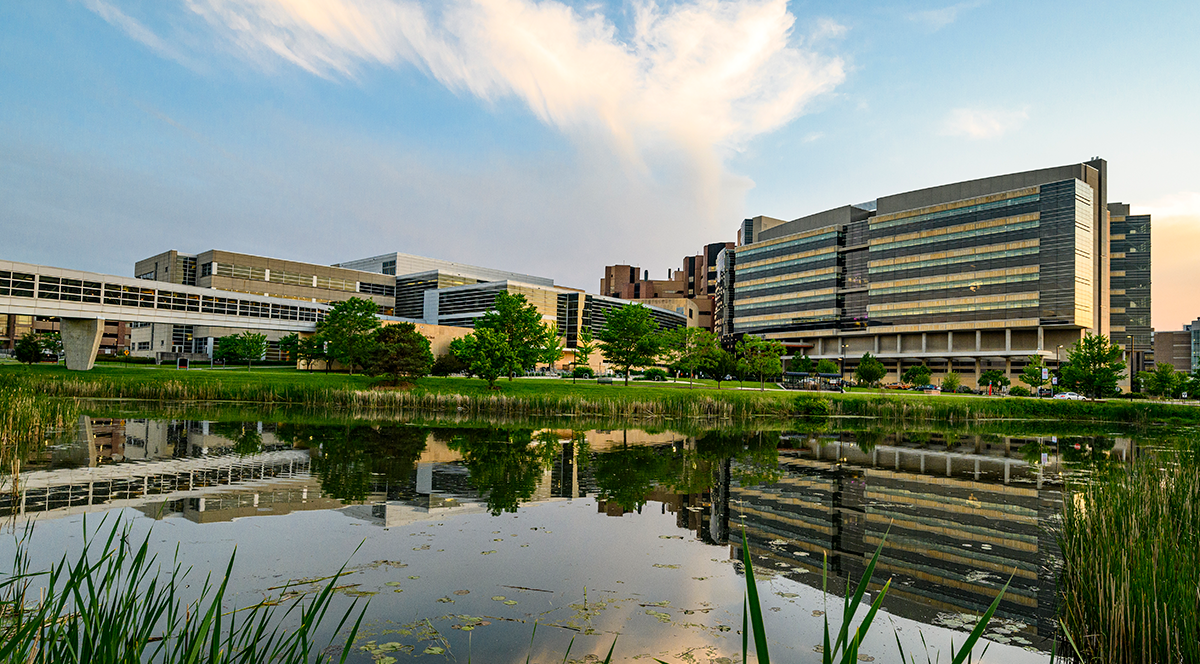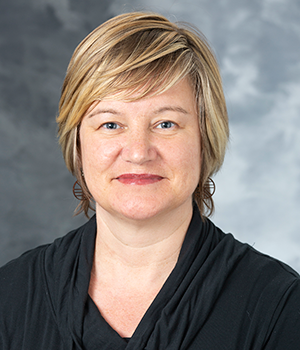
12 Jun Team Spotlight: Tamara Kempken Mehring
 Tamara Kempken Mehring is a Clinical Nurse Specialist for the Clinical Research Unit (CRU) at UW Hospital.
Tamara Kempken Mehring is a Clinical Nurse Specialist for the Clinical Research Unit (CRU) at UW Hospital.
PLEASE SHARE A BIT ABOUT YOUR PROFESSIONAL JOURNEY. HOW DID YOU ARRIVE AT YOUR CURRENT POSITION?
I think many people’s path to clinical research is not direct or planned. I knew next to nothing about clinical research or clinical research nursing when, during nursing school I accepted a position as a student nursing assistant on the General Clinical Research Unit (GCRC), now the Clinical Research Unit (CRU). This was my first introduction to clinical research nursing. I love science and this was the perfect example of the intersection of clinical and research. When I graduated from nursing school, I found a job in the Department of Medicine as a CRN coordinator in the Allergy and Asthma Research Department. In 1999 a position opened on the GCRC and have been on the unit ever since. I have worked as a direct care CRN, a charge RN, in protocol implementation and after getting my MSN in Nursing I was fortunate to be hired as the Clinical Nurse Specialist (CNS) on the CRU.
WHAT MOTIVATIONS FUELED YOUR CAREER PATH?
When I first started in clinical research, I was a nurse working in a research setting, today I am a clinical research nurse. Throughout my career I have become passionate about caring for patients/participants on clinical trials, finding ways to implement protocols on the CRU to ensure human subjects protections and fidelity to the research protocol. I am motivated by the participants who contribute to clinical research. We could not do what we are doing without them. Our participants inspire me, they may or may not benefit from participation, but they too care about the good, they too want to be a part of something bigger. Mary Jane Williams, the Nurse Manger on the CRU, introduced me to and involved me in many activities that took me beyond the bedside and turned me into a clinical research nurse. My motivation is the fact that without clinical research and clinical trials, healthcare and medicine do not move forward. I want to be on the cutting edge of new treatments. I want to be part of something bigger and feel that through clinical research I am making a difference in the future of many. If we do not do what we are doing today, there is no future.
WHAT ARE SOME PROFESSIONAL DEVELOPMENT TOOLS OR RESOURCES THAT YOU WOULD RECOMMEND TO OTHERS IN YOUR POSITION/FIELD?
I believe having a mentor is important. There are many challenges in the world of clinical research, and it is helpful to have someone to discuss these challenges and potential solutions with. There are professional organizations specific to clinical research professionals that offer excellent professional development opportunities, training and education through the National Institutes of Health and other research entities. As a nurse, I am a member of the International Association of Clinical Research Nurses (IACRN). This is an organization that has contributed to my professional development as a CRN and offers a wonderful community. Being a part of these professional organizations, attending conferences or trainings, and interacting with other research professionals is invaluable. Being around others that speak the language fuels my tank! It can be a challenge to explain what it is that we do, and more importantly, why it is so important to those not involved in clinical research.
HOW IS SUCCESS DEFINED IN YOUR FIELD?
To me, success is being able to offer a patient a treatment when they have no other standard of care options. It is finding a way to carry out a complex protocol, obtaining quality data, keeping patients safe. Every time I see a drug commercial, I know that drug was tested in clinical trials and that without those clinical trials we would not have new treatments.
WHAT DO YOU LIKE MOST ABOUT YOUR ROLE?
I love the variety that my role offers and the teams that I work with. I like being a part of something bigger. I like being able to see things from the 10,000-foot view and at the bedside while a patient receives a first in human drug and potential treatment.
WHAT ARE SOME CHALLENGES YOU FACE IN YOUR ROLE?
There are many challenges. I think the main challenge is that people do not understand the level of detail, planning, and thought that goes into what we do as clinical research professionals. That start and stop times matter, that we are doing things for the first time and there is no policy or SOP already in existence that we can follow. Research is not standard of care and therefor following standard of care is not always possible, finding ways to move forward with research while keeping the patient safe is a challenge. Not knowing is a challenge, but to me, that cannot be a barrier. If we let not knowing guide our actions, we would have no COVID vaccines, no FDA approved drugs that are given every day.
HAVE ANY MENTORS IMPACTED YOUR PROFESSIONAL DEVELOPMENT? HOW DID YOU DEVELOP THESE RELATIONSHIPS?
Mary Jane Williams has been a mentor for me for many years. She was a previous Nurse Manger on the CRU. She encouraged me to get involved in IACRN and through my involvement I have worked with and learned from many CRNs globally. I think relationships are very important. Everyone has something to share, we are always learning from each other.
WHAT DO YOU WISH YOU HAD KNOWN WHEN YOU STARTED YOUR CAREER PATH?
I wish I would have known that there are many people working in clinical research and about the resources available specific to clinical research. When I started, there was not a clinical research specific onboarding process, it was very much learn as you go.
WHAT ADVICE DO YOU HAVE FOR SOMEONE PURSUING A SIMILAR CAREER PATH TODAY?
Do not make assumptions, ask questions and be nice! Take time to invest in yourself by searching out professional development opportunities. Recognize that there are many players in the clinical research enterprise, talk to people and learn from them. Communication is key, make that a part of your professional development plan. Be curious, not judgmental (Walt Whitman).
WHAT’S YOUR FAVORITE PART ABOUT WORKING WITHIN THE UW CLINICAL RESEARCH COMMUNITY?
I love working with people who are passionate about making a difference. Working together to find a way to get things done, exploring what we can do and not why we can’t do something. I love being a part of the research team at UW Health.



